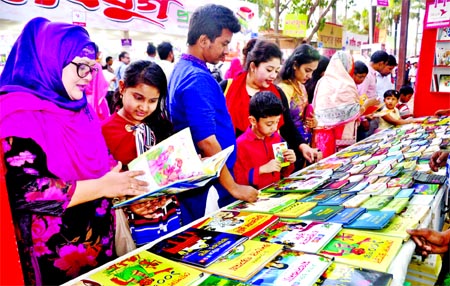
Good news awaits readers. Kabori’s memoirs, Smriti Tuku Thaak, will soon make its way to the bookshops and of course to homes, into the hands of movie buffs across the country.
Kabori, known as the mishti meye – sweet maiden – of Bangla cinema, has long been a household name in Bangladesh. She has been, naturally, an artiste and with that has come her role as a political activist.
She has served a term in the Jatiyo Sangsad as an elected lawmaker and in that role was symbolic of the transformation that has come into the lives of women. And that is not all.
Kabori happens to be an intrinsic part of Bangladesh’s political history as well, given that she played a prominent role in the War of Liberation in 1971.
As a spokesperson of BPL, publishers of the actress’ memoirs, would have us know, the first movie in which Kabori acted and which assured her a place in the history of Bengali cinema was Shutorang in 1964. Then a teenager, Kabori was picked by the renowned auteur Subhas Dutta. The book will also contain some rare photographs of the legendary actress coupled with a number of anecdotes she relates about her life and career.
Shutorang was to be only the beginning of a long half-century career in filmdom for Kabori, who would go on to act in as many as two hundred movies. She remains the proud actress who has had the honour of being paired with the top five leading men in the country’s film industry. Speaking to bdnews24.com, Kabori let it be known that she thought it important that people know of certain unknown facts related to her life. The memoirs promise to be revealing. The actress speaks of the first shot in Shutorang, where the scene of a slap landing across her face sends her rolling in tears. She notes too, with that twinkle in the eye, the early flush of love making inroads in her teenage heart.
There is more. The book promises to touch on the story of the long Kabori-Razzaq pair in Bangladesh’s cinema and at the same time focuses on Razzaq’s place in the real life of the actress. Kabori goes no-holds-barred in her reflections on her relations with Razzak. “We have worked together in movies, so it is was natural that friendship would blossom between us and it did. But Razzaq has always been envious of me. I don’t know if I was envious of him. But I did give him a place in my life which was a step more than friendship.”
Such Kabori-Razzaq starrers as Neel Akasher Neeche, Mainamati, Dheu-er Por Dheu, Porichoy, Odhikar, Beiman, Abak Prithibi, Sonali Akash, Anirban, Deep Nebhe Nai were received cheerfully by audiences, which in later times also saw the pair in the role of ageing parents in Amader Shontan.
All these years after playing her many roles on the silver screen, Kabori today poses a question to herself: Was the love between the leading man and leading lady in the movies no more than make-believe?
Kabori’s screen career advanced a good step further with the 1973 movie Rangbaj, where the Sabina Yasmin song, shey je keno elo na kichhu bhalo laage na, lisped by her yet creates thrills among music aficionados in Bangladesh. And Kabori as director? In 2006, Aina, the first film she directed, hit the screen. Of late, Kabori has been serving as a guest lecturer at a university.
Of Smriti Tuku Thaak, the poet Nirmalendu Goon writes, “Going through the manuscript of the memoirs of the legendary actress Kabori, I was struck by the thought that I was reading the autobiography of a poet.”
There is richness in Smriti Tuku Thaak. It is the story of the young Meena Pal, of her beginnings at Firingi Bazar in Chittagong, of her dreams of teaching in school. The story branches out into larger areas, with her account of her bitter experience as a politician in Narayanganj, with her reflections on her relationships with the Osman family into which clan she was once married. It speaks of the waves that have carried her from shore to shore. Kabori’s memoirs promise to be an engaging read. They promise to be simply unputdownable.

